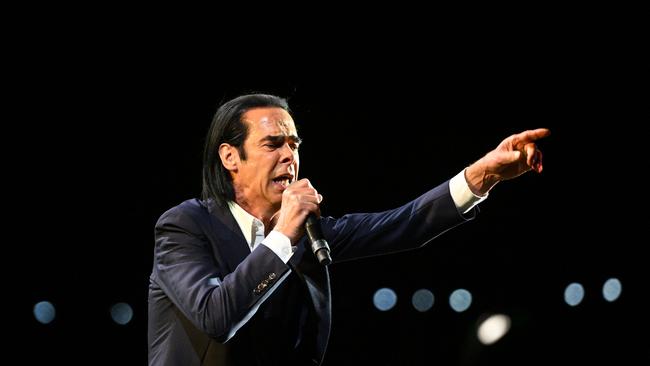
Younger generations in this country are also coming for Christian fundamentalism. The dogma of religious ultra-conservatives is butting up hard against social media-fuelled modern thinking. It’s why the recent Andrew Thorburn situation as Essendon’s CEO was so tricky, given the man was also chairman of a church opposing same sex relationships and abortion, and why the Gold Coast’s Livingstone Christian College made news recently when its principal asked students if they knew an unmarried teacher lived with her boyfriend. The issue was sparked by a parent’s concern over “biblical moral standards”. The teacher left. These approaches to Christianity seem to embrace tenets unaligned with Jesus’ example of a voluptuous enveloping of others. That revolutionary man blazed courageous compassion, a sense of tolerance, yet it feels like there’s no exchange of embracing love in these arch conservative religious movements. Just an erecting of walls. To keep people out.

Many young people look on in bewilderment and revulsion at values not of their world. They champion qualities like kindness, tolerance, equality and fairness. Yet do modern church movements, of the kind helmed by Thorburn and the breakaway Anglican movement, the Diocese of the Southern Cross, embody these? No wonder so many young people don’t define themselves as religious anymore – yet may see themselves as spiritual. It’s a nebulous yet deeply felt spirituality unaligned with church certainties, exemplified by the likes of Nick Cave. “I’m a religious person,” he explained recently. “As far back as I can remember I’ve always had a deep interest in religion. But I had a slightly amorphous relationship with the practicalities of it… the biggest problem I find with religion is the certainty of belief, which tends, ultimately, to lead to a kind of moral superiority, or dogmatism.”
South Australian ex-Pentecostal preacher Louise Omer also has a problem with dogmatism. Her memoir, Holy Woman, asks uncomfortable questions: “Why was independent female power incompatible with Christianity?” “Why was my beloved God male?” “Why was Eve responsible for the Fall of Man?” Omer’s conclusion: “These questions led me to give up on Pentecostalism entirely, because it runs on male supremacy and indoctrinates women into a slave mentality, it makes us see ourselves as inferior.” Male privilege, in so many arenas, has the power to dictate the rules – that subsequently work in its favour.
The world is morphing, ancient edifices crumbling, old certainties being questioned by the roar of under-35s calling out unfairness and cruelty. The callousness of some parts of the racing industry is highlighted in a hashtag #nuptothecup. The national netball team refuses to play with uniforms carrying the logo of its sponsor, Hancock Prospecting. Tasmania’s Catholic Archbishop backs down from a reading at a girl’s school’s graduation mass that decrees wives “should submit to their husbands”.
The tide of modern thinking is ebbing away from hard-line Christianity. Modelling by maths professor John Hayward suggests the Anglican Church will be extinct in England by the 2060s. Nick Cave talks of spiritual alternatives. “I don’t have any problem describing the Bad Seeds’ concerts… as religious. Religion… means community, an exchange of love that operates in a circular way.” Something not associated with fearful reactionaries. Stubborn old people of the church are destroying their institution; leaving it, in the western world in particular, as a fragile movement of its time – that’s not moving with the times.







The late Christopher Hitchens posed quite the question on modern religion: “To terrify children with the image of hell, to consider women an inferior creation – is that good for the world?” To which I’d add, is it good for an organisation to preach homophobia and sexism as pillars of a community in this day and age? Religious extremists, you have a problem. It’s called the growing awareness of younger generations. They’re coming for you. Around the world we’re seeing youth-led reckonings with fundamentalist gerontocracies, most recently with demonstrations in Iran sparked by the death of young Mahsa Amini, held in custody for refusing to wear a hijab.